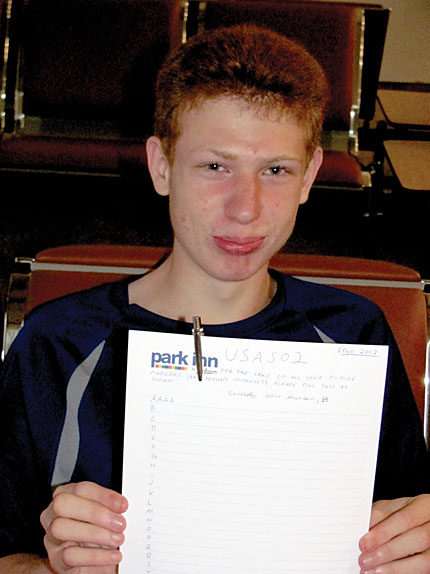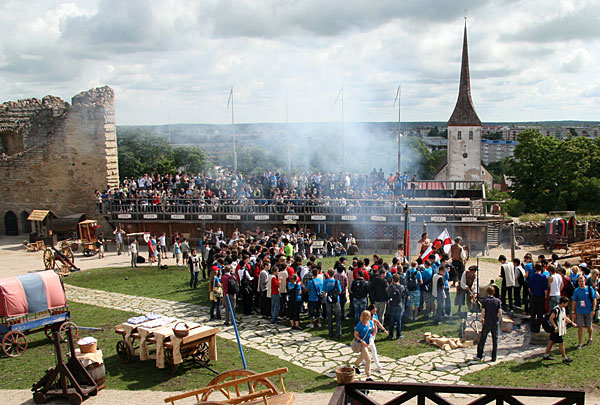High school students compete in Estonia
DOI: 10.1063/PT.3.1712
Attila Szabó of Hungary was the top scorer in this year’s International Physics Olympiad, which was held in Estonia in July. The 378 high school competitors represented 80 countries; 45 participants from 21 countries won gold medals. The teams from China and Taiwan were the only ones to have all five members win gold.
The US team earned three gold medals and two silvers. Golds went to Eric Schneider and Kevin Zhou, who attend high school together in Lincroft, New Jersey, and Allan Sadun of Austin, Texas. Jeffrey Yan of Palo Alto, California, and Jeffrey Cai of Basking Ridge, New Jersey, took home silvers. Schneider also won a special prize for having the best solution to one of the theoretical problems. The US team was sponsored by the American Institute of Physics and its member societies, with the American Association of Physics Teachers hosting and coaching, and by the University of Maryland’s physics department and Joint Quantum Institute.

US gold medalist Eric Schneider got a friendly nudge from one of the graders to practice his penmanship.
PAUL STANLEY

In the experimental part of the competition, students measured the magnetic permeability of water and the shape of the water’s surface, and they deduced the nonlinear electronic components in a black box. The theoretical problems challenged students to calculate various quantities about ballistics, air flow around a wing, magnetic straws, and star formation. The theoretical problems were the hardest they’ve been in a decade, says US team coach Paul Stanley. “They spread out the highest performers. And they were fun.”
For the first time, the competition was split across two cities, with competitors on the university campus in Tartu, about 200 km from the coaches and observers, who were in the capital city of Tallinn. That made it easier to separate the coaches, who knew the problems and answers, from the students, who didn’t. And scanning and emailing the finished tests streamlined the grading process, Stanley says.
Next year’s Olympiad will be held in Copenhagen.

Physics Olympiad participants roam the 14th-century ruins of Rakvere castle during a break from tests.
MERILY SALURA

More about the authors
Toni Feder, tfeder@aip.org





